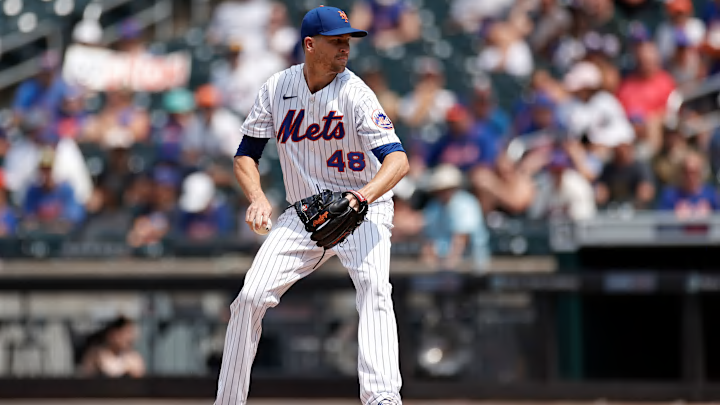
8. David Cone - 1988
The Mets acquired David Cone after winning the World Series. He was solid in his first year with the team, posting a 3.71 ERA in 21 appearances and 13 starts. The following year was when Cone had his real coming-out party.
In the 1988 season, Cone went 20-3 with a 2.22 ERA in his 35 appearances (28 starts). He struck out 213 batters in 231.1 innings pitched. For some reason, Cone finished third in the Cy Young race. I understand him not winning as Orel Hershiser had an unbelievable season including throwing 59 consecutive scoreless innings, but Cone definitely had a better season than Danny Jackson who finished in second.
Cone made his first all-star team in 1988 and finished in the top ten in the MVP race. He allowed just 0.4 HR/9 and 6.9 H/9. Considering the fact that he threw seven or more innings in 22 of his 28 starts, that's awfully impressive.
Cone had eight complete games and four shutouts. He also had two starts in which he went ten innings allowing just one run. Cone helped lead the Mets to a 100 win season and an NLCS appearance. They'd lose to the eventual World Series champion Dodgers but that doesn't take away everything Cone did to help get them there.
